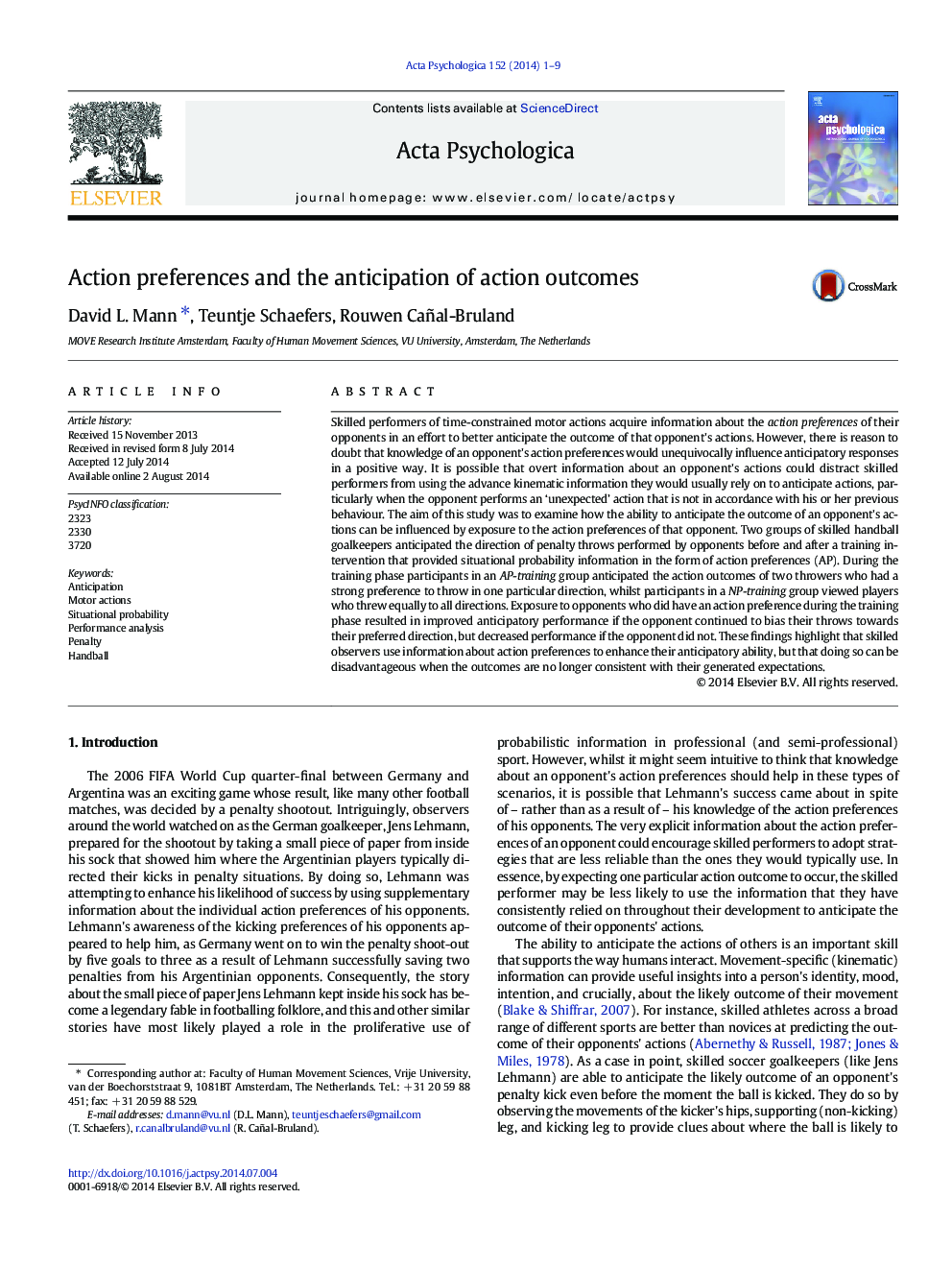| کد مقاله | کد نشریه | سال انتشار | مقاله انگلیسی | نسخه تمام متن |
|---|---|---|---|---|
| 919779 | 1473606 | 2014 | 9 صفحه PDF | دانلود رایگان |
• We examined anticipatory skill after viewing actors with action preferences.
• Action preferences influence how skilled observers anticipate outcomes.
• Information about action biases can increase the speed and accuracy of judgements.
• There is a disadvantageous flipside when using information about action preferences.
Skilled performers of time-constrained motor actions acquire information about the action preferences of their opponents in an effort to better anticipate the outcome of that opponent's actions. However, there is reason to doubt that knowledge of an opponent's action preferences would unequivocally influence anticipatory responses in a positive way. It is possible that overt information about an opponent's actions could distract skilled performers from using the advance kinematic information they would usually rely on to anticipate actions, particularly when the opponent performs an ‘unexpected’ action that is not in accordance with his or her previous behaviour. The aim of this study was to examine how the ability to anticipate the outcome of an opponent's actions can be influenced by exposure to the action preferences of that opponent. Two groups of skilled handball goalkeepers anticipated the direction of penalty throws performed by opponents before and after a training intervention that provided situational probability information in the form of action preferences (AP). During the training phase participants in an AP-training group anticipated the action outcomes of two throwers who had a strong preference to throw in one particular direction, whilst participants in a NP-training group viewed players who threw equally to all directions. Exposure to opponents who did have an action preference during the training phase resulted in improved anticipatory performance if the opponent continued to bias their throws towards their preferred direction, but decreased performance if the opponent did not. These findings highlight that skilled observers use information about action preferences to enhance their anticipatory ability, but that doing so can be disadvantageous when the outcomes are no longer consistent with their generated expectations.
Journal: Acta Psychologica - Volume 152, October 2014, Pages 1–9
